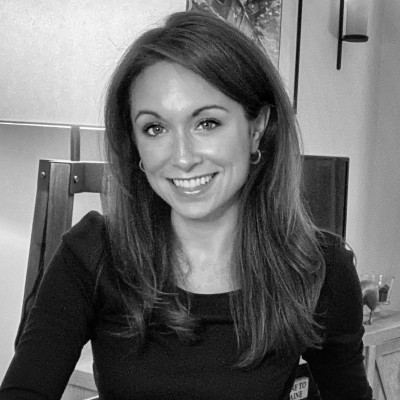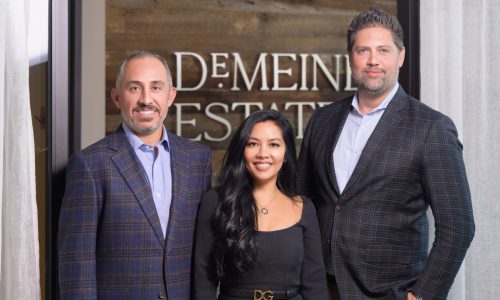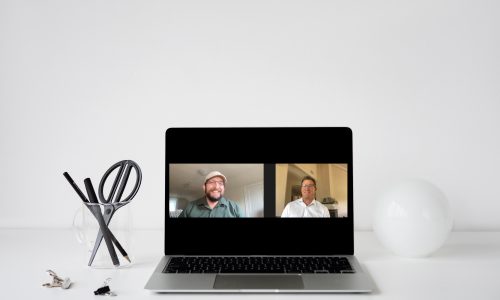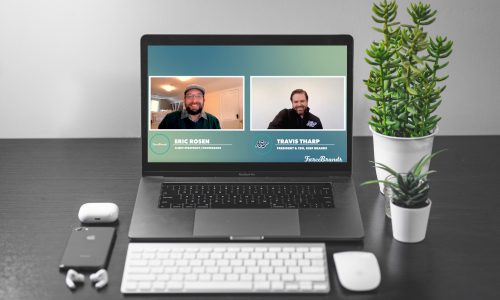In the premiere episode of Cannabis Matters, we go behind the scenes of Glass House Brands with President Graham Farrar.
A self-proclaimed tech geek with a longtime passion for cannabis, Farrar is on the cutting edge of California’s booming cannabis industry.
ForceBrands‘ Cannabis Client Strategist and host of Cannabis Matters, Eric Rosen, catches up with him as he chats about team building, federal legalization, and more. Watch our exclusive interview and read the full transcript below.
Graham Farrar: It takes the same amount of work to grow good as it does to grow amazing, so I’m gonna be growing only amazing.
Eric Rosen: Graham, thanks for carving out the time today. I really appreciate it. You know, for people that aren’t familiar with Glass House, I was wondering, can you just give a high-level overview of who you are, what you do, and sort of the dent that you guys are putting in the universe?
GF: Yeah, sure. So Glass House Brands was formed by the Glass House Farms, which I started seven or so years ago now. It seems crazy that it’s that long, which is a farm based in Santa Barbara. We’re now one of the largest, if not the largest, greenhouse grower of cannabis in California. So we’re very focused on California, fully vertically integrated. We have our brands, which Glass House Farms is the main one, which is the largest flower brand in the state of California, Forbidden Flowers, which is a brand that we did with Bella Thorne and Field Extractions, which is a connoisseur extract brand, live resin, live rosin and then Mama Sue, which is a health and wellness brand. And then we just acquired PLUS Gummies, so that’s part of Glass House as well.
ER: Congrats on the acquisition. That’s really exciting.
GF: Thanks, man. Appreciate it.
ER: Taking a step back, everyone’s got an interesting origin story. What inspired you to jump ship and go over to cannabis?
GF: Yeah, well, I mean, the real answer is that I was always on the cannabis ship. So I’m a firm believer that cannabis makes the world a better place. I’ve been using it probably since before I really should have been using it, but going on 25+ years. I’m kind of a tech geek by work experience and background. Software.com, Sonos. I started a company that made apps for the iPhone when that first came out. But I’ve always been a cannabis lover by passion. So going all the way back to my first two-foot by three-foot closet in Boulder, Colorado in college, which was my first-ever homegrown, two ebb and flood setups with six rockwool cubes and mylar. I’m a tech geek so I automated it all. But since then, I’ve had garages and houses and warehouses and then finally, seven years ago, with Glass House Farms, we had started a company called Elite which made fertilizers basically for more scaled producers. And one of the things we realized is that we were training people how to be our customers, so they could buy our fertilizer, and then eventually said well, if these are the vanguard, cutting edge, good farmers, and we’re teaching them cannabis, why aren’t we just doing this ourselves? And so that’s how Glass House Farm came to be and how we started and just started doing it ourselves. I’ve always had a passion for cannabis and I think it makes the world a better place. Our goal with Glass House is grow the best cannabis we can for as many people as possible, eventually I think that’s a national scale, and do it efficiently enough that it’s affordable for everybody. If you cut to the chase, who we are really just stems from what I’ve believed for over 25 years now. And one of the things that we want to do with Glass House, we kind of grow for that pinnacle, put-it-in-a-jar flower under the belief that that’s the highest bar, right? Like if you can grow amazing apples, you can also make amazing apple sauce, and going the other direction, making apples out of applesauce is much harder. So we’re always looking for those genetics that can kind of do the double duty where we can grow awesome flower, put it in a jar, and then have the byproducts, smaller buds, the other plants, the things that we freshly freeze, etc. are also then going to be stellar quality for all the extraction, rosin, and resin, etc. Smalls and everything else. So, that’s kind of been our approach — go for the pinnacle, and then everything else will take care of itself.
ER: You’ve been playing in the cannabis space for a while, formally and informally. Taking a step back at the industry level, what are some of the major inflection points, paradigm shifts that you’ve seen the industry go through to date? They can be the biggest ones but just the most interesting ones, so what comes to mind?
GF: So obviously the stuff on the regulatory side is big. Prop 215 is seminal, that started the whole thing, 26-27 years ago. That’s when even the concept of cannabis not being an arrest warrant came into being. And I think one of the things that I love about cannabis is the entire industry is rooted in a plant, which comes from our planet and we’re all part of nature, and the idea that we’re somehow above nature is something that I think we need to break. We need to realize that we’re identical to nature and operate accordingly. So cannabis brings us back to that, but it’s also an industry that came from compassion, right? I mean, that’s literally how it started, as medical, compassion, people who were sick and finding that this plant was medicine for them. What we want to do is keep that ethos going as the industry evolves and make sure that it doesn’t ever lose that. The truth I saw was cannabis was beneficial and so I believed it. As soon as Prop 64 passed, everybody else knew it, too. It took a couple years from the vote to the implementation, but you knew that that’s where we were going. And the cops knew that’s where we’re going, and the regulators knew that’s where we were going. And so the idea that there’s now Prop 215 plus, and so then that’s when we started going for the big farms, making ordinances on the local level to permit things. We were involved in even writing the ordinance for Santa Barbara County, which was first-of-its-kind. We opened up the first dispensary, the first dispensary ever in the city of Santa Barbara. So we got to do a lot of things first because we’re on the leading edge of that happening. So those were massive inflections. And I think now we’re in the midst of one when we see what’s happened at the federal level. It’s certainly not done yet. But I think most people are starting to feel pretty much when not if. It used to be a Democrat thing and the Republicans said, No, you guys are crazy. But now they’re not arguing if you should do it, they’re arguing how you should do it.
ER: Fast forward, federal legalization happens. From a positioning perspective, where does Glass House sit when you think about California cannabis as a worldwide brand? In your mind, where does the org sit?
GF: Hopefully at the top. We are building for that world we see coming. And I think one of the fundamentally different things about us is that we’re not just building for today, and, of course, today is important, and the long-term doesn’t matter if you don’t survive through the medium term and all that. But the way that I look at it is cannabis comes from California. There will be exceptions to that, sure. But I’d say I think 80 percent of the national cannabis brands would be California brands. Just like you probably don’t have a favorite non-Mexican tequila, just like Champagne comes from France. Just like people pay a premium for cigars from Cuba. I think you will be able to get cannabis from lots of places but California will be the avant-garde. It will have the most advanced products. So if you can take a great outdoor climate and take the best climate, take the best facility, which we now own and a great team, ie: Glass House running half a million square feet for seven plus years in a greenhouse together, you are going to have the best quality, the lowest cost, and consumers are going to pay you a premium for it because it’s California. So that’s the world we’re building for. If federal legalization happens, I think we’ll see a massive relocation of where cannabis has grown to places where it makes sense to grow it, and then you’re gonna see those brands across the country. So our bet is California is where you grow cannabis, consumers will pick it over other opportunities. All the other states are going to have California brands on their shelves.
ER: Coming back to the kind of the concept of inflection points from the macro to the micro level. Through the evolution of Glass House, what are some of the more interesting or biggest inflection points that you’ve experienced and maybe navigated through as a leader within Glass House in the last couple years?
GF: Yeah, I mean it’s interesting because there’s so many different ways to look at that. There’s the first harvest, like that was monumental, right. You either haven’t done something or you had. Zero to one. So like, you know, that was massive. Going public recently is a massive change. We’re now one of the few cannabis companies on the planet that’s a public company, traded in Canada still because of our silly laws down here where we can have a Canadian cannabis company on the U.S. exchange but a U.S. cannabis company has to be on the Canadian exchange. Make sense of that and you’re smarter than I am. But, you know, nonetheless, here we are buying a new farm. It was a massive inflection point. I mean, I think that facility is incredible, no matter how you slice it, right? And it’s the largest greenhouse that can be licensed for cannabis on the planet. Our brand hitting number one felt really good. I think it was a testament to the work that the entire team’s done. Quality, consistency, and cost. There are so many more to come, too. Each time you open a dispensary is a milestone. The first plants in the new farm will be a milestone, it’s like you know, it’s just one after another, we’re on this uphill climb building something I think really amazing. Excited to be doing it.
ER: I’m curious to hear how your thought stream has evolved over the evolution of Glass House with respect to building teams.
GF: As I mentioned, we want to keep the purity of the plant and you know, we want to amplify that scale, not dilute the scale. And so one of the things that we’ve done is we’ve consciously, I call it cannabis IQ and business IQ and agricultural IQ. And there aren’t a ton of people who come to us who have all three of these, right? It’s pretty rare, right? There are 25-year cannabis growers, and there’s 25-year greenhouse growers, but a 25-year cannabis greenhouse grower is in prison. Unfortunate fact. We should get them out. We’ve got a whole program on clemency and getting people out of prison. No one should be in prison for a plant. But those are the facts. Like you couldn’t be a massive greenhouse grower of cannabis for 25 years. So we have 25-year cannabis guys. We have 25-year greenhouse guys, and we’ve put them together. Thankfully, many of them we’ve put together you know more than half a decade ago so now they both have cannabis IQ and greenhouse IQ. And then we brought in some folks who have business IQ like our new CFO who came from Procter and Gamble and SiriusXM, but then actually spent some time at a cannabis company so he has some business IQ and some cannabis IQ. We have a COO that came from Nestlé and Nestlé Foods. No cannabis IQ when he got here. Good business IQ, and so over the years we’ve educated him on our side of the business and he’s educated us on his. We need people who will think like that, like, you know, they’re part of the bigger vision but they also need to evolve their own organizations autonomously. I think that’s one of the things that we’re always looking for.
ER: What is your balance barometer for how to deal with the right balance of legacy, cannabis acumen, and that could be anything. It could be business, marketing, sales, anything associated with just cannabis acumen with what you were saying about importing talent from the quote-unquote outside. From the Nestlés, the Purina, or the Procter and Gambles of the world. And this changes as companies grow and scale. It’s different when you’re at zero to 15 miles an hour, than 30 to 45. And, you know, 500,000 square feet versus 5.5 million. So what’s your gut check?
GF: It’s actually pretty easy. I think there are two rules I have. One is we are a regulated business that follows all the rules and so you can’t have any legacy that involves flexibility on that. I mean, I sometimes joke, we run a compliance business and sell weed on the side, which is a joke, but also not a joke, right? If we don’t get that part right then we don’t get to do the rest of this stuff. We’re a public company. We have every license that you can have in California. Everybody can inspect our books. We get audited. We get business. Like there can’t be any halfway. There’s no more gray for us. So that can’t come from the legacy side. Other than that, you gotta have three things. You got to be hungry, humble, and hardworking. And if you got those three things, then I think the more legacy the better because really what I want is I want people who have been in this and love the plant and love the industry and have been doing it for years and want to keep doing it and the path, in my opinion to being able to keep doing it means that you’ve got to go from the gray area, unlicensed, loosely regulated and not quite sure, to we follow all the rules and we’re in this for the next decades to come. This is batting practice. It’s not even federally legal yet. Prohibition has not ended. We are we’re about two to three, five, whatever your number is years before the end of Prohibition. There’s a long way to go and if you want to stay in this industry, then that’s the path in my given opinion, that you need to be on. So we love to have the people who think like that. Thank you guys very much for having me. I appreciate it.
ER: Yeah, it’s been a pleasure.
Catch up on more episodes from Cannabis Matters here.






